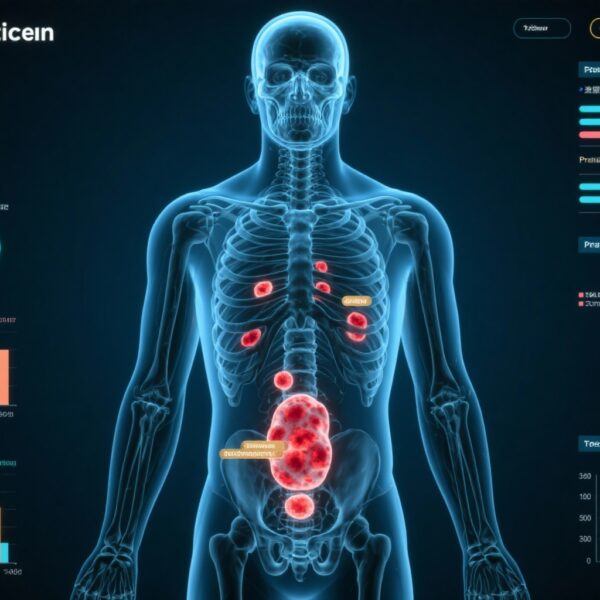Highlight
A comprehensive meta-analysis of 11 phase 3 randomized trials (n=13,648) demonstrated that systemic treatment intensification (TI) with androgen receptor pathway inhibitors (ARPIs) and/or chemotherapy significantly improves overall survival (OS) in metastatic hormone-sensitive prostate cancer (mHSPC), but the magnitude of benefit differs by age. Younger men (<70 years) experience a greater OS benefit, while older men (≥70 years) have a reduced benefit overall, particularly with triplet therapy. Notably, older men with high-volume synchronous disease still derive OS improvement from ARPI addition, whereas those with low-volume disease do not.
Background
Metastatic hormone-sensitive prostate cancer (mHSPC) is a critical clinical stage with heterogeneous outcomes influenced by tumor burden, patient factors, and treatment strategies. Older men with mHSPC frequently have multiple comorbidities and face competing mortality risks, complicating treatment decisions. While treatment intensification involving next-generation androgen receptor pathway inhibitors (ARPIs) and chemotherapy has become standard for improving survival, the extent to which age modifies these benefits remains unclear. Clinicians require evidence to optimize therapy decisions balancing efficacy and tolerability in aging populations.
Study Design
This analysis performed a systematic literature search in MEDLINE, Embase, and major oncology conference proceedings to identify phase 3 randomized controlled trials from 2010 to early 2024 assessing treatment intensification in mHSPC. Age was dichotomized at 70 years in most trials (one trial used 75 years). The meta-analysis pooled data from 11 randomized comparisons, including 13,648 patients (8,324 younger and 5,162 older men). Random-effects meta-analytic models estimated hazard ratios (HRs) for OS, and meta-regression with the Hartung-Knapp method assessed interactions between age and treatment effects. Individual patient data (IPD) from the TITAN, ARASENS, and LATITUDE trials validated findings and allowed subgroup analyses by disease volume and synchronous disease status.
Key Findings
Overall, treatment intensification with ARPIs and/or chemotherapy was associated with a 27% reduction in the risk of death compared to standard therapy (HR 0.73, 95% CI 0.68–0.78). However, a statistically significant interaction was observed between age and treatment benefit (P interaction <0.001). Younger men showed a pronounced OS benefit (HR 0.63, 95% CI 0.56–0.70), whereas older men experienced a more modest but still significant benefit (HR 0.82, 95% CI 0.74–0.90).
In subgroup analyses, the use of predominantly triplet therapy (androgen deprivation therapy plus chemotherapy plus ARPI) in older men did not confer a statistically significant OS benefit (HR 0.94, 95% CI 0.77–1.14), indicating diminished tolerability or efficacy in this population. Conversely, the IPD analysis focusing on ARPI addition to standard hormone therapy revealed that older men with high-volume synchronous mHSPC derived a survival advantage (HR 0.83, 95% CI 0.70–0.99), while those with low-volume synchronous disease did not show significant benefit (HR 0.89, 95% CI 0.61–1.30).
The findings underscore the importance of disease burden and patient age in guiding treatment intensity decisions. In low-volume synchronous disease, especially among older patients, radiotherapy to the primary tumor remains the standard of care to optimize outcomes while minimizing systemic toxicity.
Expert Commentary
This study comprehensively clarifies the nuanced relationship between biological age and systemic treatment benefit in mHSPC, which has profound implications for clinical practice. Older patients, frequently underrepresented in oncology trials, appear to gain less OS benefit from intensified systemic therapy, particularly aggressive triplet regimens, possibly due to increased frailty, comorbidity burden, and treatment-related toxicity.
Importantly, the preserved benefit in older patients with high-volume disease supports the selective use of ARPIs in this subgroup. These insights align with evolving guideline recommendations advocating individualized treatment based on patient fitness, disease burden, and preferences. The use of IPD adds robustness, corroborating aggregate-level findings and enabling refined subgroup evaluations.
Limitations include heterogeneity in age cutoffs among trials and potential differences in supportive care practices over the examined period. Further research should investigate geriatric assessment-guided treatment tailoring and quality-of-life outcomes in older men with mHSPC.
Conclusion
This meta-analysis validates that systemic treatment intensification improves overall survival in mHSPC but with important age-related differences. Younger men derive pronounced benefit, while older men—especially those with low-volume synchronous disease—may have limited survival gain from intensified systemic approaches like triplet therapy. Tailored strategies prioritizing ARPI use in high-volume older patients and integrating radiotherapy for low-volume disease are clinically prudent. These findings inform evidence-based, patient-centered decision-making and highlight the need for ongoing research into optimizing treatment in diverse aging populations with prostate cancer.
Funding and ClinicalTrials.gov
This work was supported by the National Institutes of Health and other bodies as detailed in the original publication. The referenced trials (TITAN, ARASENS, LATITUDE) are registered in ClinicalTrials.gov under NCT identifiers: TITAN (NCT02489318), ARASENS (NCT02799602), LATITUDE (NCT01715285).
References
1. Morgans AK, Roy S, Jia AY, et al. Age and Treatment Intensification in Metastatic Hormone-Sensitive Prostate Cancer. NEJM Evid. 2025 Nov;4(11):EVIDoa2500109. doi: 10.1056/EVIDoa2500109.
2. Chi KN, Agarwal N, Bjartell A, et al. Apalutamide for Metastatic, Castration-Sensitive Prostate Cancer. N Engl J Med. 2019;381(1):13-24.
3. Smith MR, Hussain M, Saad F, et al. Darolutamide and Survival in Metastatic, Hormone-Sensitive Prostate Cancer. N Engl J Med. 2022;386(11):1132-1142.
4. James ND, de Bono JS, Spears MR, et al. Abiraterone for Prostate Cancer Not Previously Treated with Hormone Therapy. N Engl J Med. 2017;377(4):338-351.



